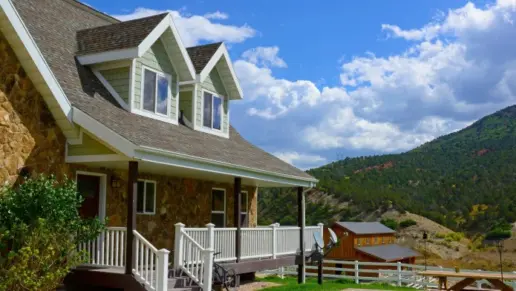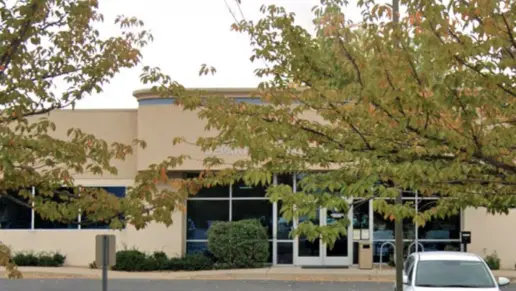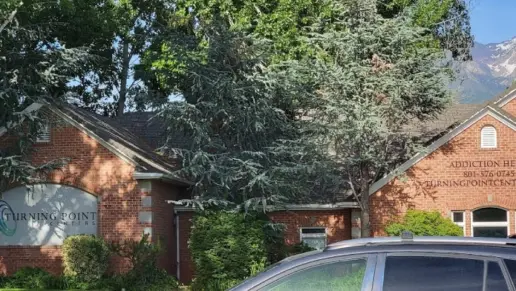If you have a choice NEVER bring a loved one here. It’s horrific. They will receive no one on one care despite their mission statement saying… To our patients, we commit ourselves to providing quality, individualized care at treatment facilities that offer them a support ...
About the Facility
Highland Ridge Hospital is a private hospital located in Midvale, UT. Highland Ridge Hospital specializes in the treatment of Acute Psychiatric, Substance Abuse Treatment, Adolescent Psychiatric, Outpatient Mental Wellness, Co-occurring Disorders and Geriatric Mental Wellness.
Highland Ridge Hospital knows that each person is a unique individual who requires high-quality treatment and an individualized plan of care that involves treating each person with the dignity, respect, compassion, and care that they deserve so that each patient can recover and return to their communities as a happy and productive person.
Highland Ridge Hospital has a compassionate and experience team of clinicians that works together to help their clients to recover from substance abuse, as well as mental health issues. Their staff has helped thousands of their clients to achieve sobriety.
For clients with co-occurring disorders, Highland Ridge treats the whole person. They bring a compassionate, experienced team of clinicians together in a fully integrated and customized treatment program to help you recover.
 Accreditations
Accreditations

Joint Commission
The Joint Commission, formerly known as JCAHO, is a nonprofit organization that accredits rehab organizations and programs. Founded in 1951, the Joint Commision's mission is to improve the quality of patient care and demonstrating the quality of patient care.
Joint Commission Accreditation: Yes
Accreditation Number: 1020

SAMHSA
The Substance Abuse and Mental Health Services Administration (SAMHSA) is a branch of the U.S. Department of Health and Human Services. Established in 1992 by congress, SAMHSA's mission is to reduce the impact of substance abuse and mental illness on American's communities.
SAMHSA Listed: Yes

State License
State Licenses are permits issued by government agencies that allow rehab organizations to conduct business legally within a certain geographical area. Typically, the kind of program a rehab facility offers, along with its physical location, determines which licenses are required to operate legally.
State License: Utah
 Treatment
Treatment
 Mental Health and Substance Abuse
Mental Health and Substance Abuse
Dual-diagnosis rehabs in Utah provide comprehensive care for individuals facing both mental health and substance abuse challenges. Through personalized treatment plans tailored to your unique needs, clinicians provide a holistic and effective approach towards mental health. Programs usually include individual and group therapies, such as cognitive behavioral therapy, or dialectical behavioral therapy, mindfulness-based therapy, and skills training to dramatically enhance your chances of long-term sobriety and mental health.
 Insurance and Financial
Insurance and Financial
Private insurance
Self-pay options
Military insurance
 Programs
Programs
-
Adolescence program
-
Adult program
-
Elderly program
-
Program for men
-
Program for women
-
Young adult program
 Levels of Care
Levels of Care
 Medically Assisted Detox
Medically Assisted Detox
Medical detox is the safest way to remove addictive substances from your body under the care of medical professionals. In an inpatient environment, you’ll be monitored 24/7 by doctors, nurses, and clinical experts, who will help keep you as safe and comfortable as possible and administer medication if needed to treat any withdrawal symptoms. The process may take up to a week or longer depending on your needs, and is often at least partially covered by insurance.
 Inpatient
Inpatient
Residential treatment programs are those that offer housing and meals in addition to substance abuse treatment. Rehab facilities that offer residential treatment allow patients to focus solely on recovery, in an environment totally separate from their lives. Some rehab centers specialize in short-term residential treatment (a few days to a week or two), while others solely provide treatment on a long-term basis (several weeks to months). Some offer both, and tailor treatment to the patient's individual requirements.
 Intensive Outpatient
Intensive Outpatient
Clients often choose to enter intensive outpatient programs (IOP) when they exit inpatient rehab. Others turn to IOP as an alternative to hospitalization. Intensive outpatient rehabs offer high-level care for clients in early recovery and those at an elevated risk of relapse, typically requiring them to commit to between nine and 20 hours of treatment per week. The most prevalent treatment modalities include psychotherapy, recovery education, medication assisted treatment (MAT), and holistic therapies, such as meditation.
 Partial Hospitalization Program
Partial Hospitalization Program
A partial hospitalization program (PHP) offers intensive treatment to those with moderate to severe addictions while allowing them to return home. It is often an alternative to inpatient hospitalization and a “step-down” option from residential programs. PHP treatment is tailored to your needs and lasts an average of 90 days. Weekly sessions are up to 8 hours for 5 days a week and can include relapse prevention, medication management, and behavioral therapy services. The cost of PHP treatment varies but is often fully or partially covered by providers.
 12-Step
12-Step
Participants in 12 step programs engage in rigorous group counseling, peer coaching, and personal development. Though 12 step recovery is rooted in spiritual principles, religious affiliation is not mandatory. The steps model promotes participants’ emotional and psychological healing, which is presumed integral to sustained sobriety. Regular attendance at group meetings is expected. These meetings are free, anonymous, peer-led, and accessible day and night in most communities. Gender and age-specific programs and other specialized formats are common.
 Clinical Services
Clinical Services
Cognitive Behavioral Therapy
Cognitive Behavioral Therapy (CBT) is a therapy modality that focuses on the relationship between one's thoughts, feelings, and behaviors. It is used to establish and allow for healthy responses to thoughts and feelings (instead of unhealthy responses, like using drugs or alcohol). CBT has been proven effective for recovering addicts of all kinds, and is used to strengthen a patient's own self-awareness and ability to self-regulate. CBT allows individuals to monitor their own emotional state, become more adept at communicating with others, and manage stress without needing to engage in substance abuse.
Experiential Therapy
Experiential therapy is a form of therapy in which clients are encouraged to surface and work through subconscious issues by engaging in real-time experiences. Experiential therapy departs from traditional talk therapy by involving the body, and having clients engage in activities, movements, and physical and emotional expression. This can involve role-play or using props (which can include other people). Experiential therapy can help people process trauma, memories, and emotion quickly, deeply, and in a lasting fashion, leading to substantial and impactful healing.
Family Therapy
Research clearly demonstrates that recovery is far more successful and sustainable when loved ones like family members participate in rehab and substance abuse treatment. Genetic factors may be at play when it comes to drug and alcohol addiction, as well as mental health issues. Family dynamics often play a critical role in addiction triggers, and if properly educated, family members can be a strong source of support when it comes to rehabilitation.
Group Therapy
Group therapy is any therapeutic work that happens in a group (not one-on-one). There are a number of different group therapy modalities, including support groups, experiential therapy, psycho-education, and more. Group therapy involves treatment as well as processing interaction between group members.
Individual Therapy
In individual therapy, a patient meets one-on-one with a trained psychologist or counselor. Therapy is a pivotal part of effective substance abuse treatment, as it often covers root causes of addiction, including challenges faced by the patient in their social, family, and work/school life.
Life Skills
Life skills trainings involve all the skills a person must have in order to function successfully in the world. These include time management, career guidance, money management, and effective communication. Truly successful addiction recovery is based on the ability to not only live substance-free, but to thrive. Life skills teaches the practical necessities of functioning in society, which sets clients up for success in life, and therefore sobriety.
 Settings and Amenities
Settings and Amenities
-
Private setting
-
Recreation room
-
Meditation room
-
Gym
 Contact
Contact
7309 South 180 West
Midvale UT, 84047


